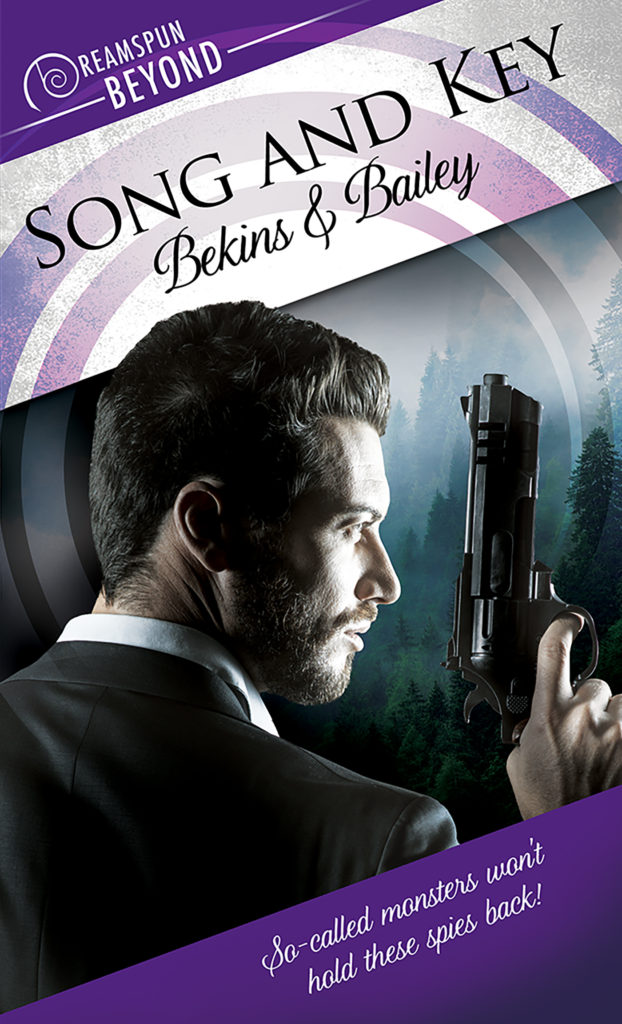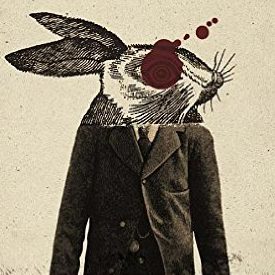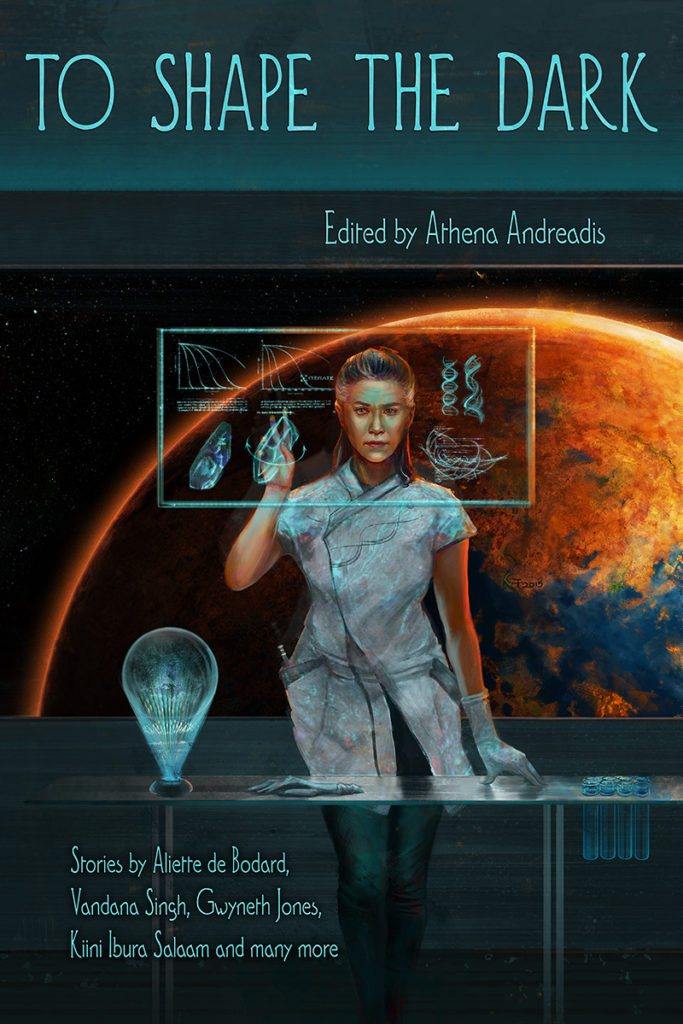Book Review: Song and Key by Alix Bekins and Connie Bailey

An adventure in the style of The Man From U.N.C.L.E, with a touch of paranormal and a healthy dose of easy sexuality, Song and Key is a fun romp through the countryside of Romania, following two secret agents on their mission to do their boss a favor. Alix Bekins and Connie Bailey partner up to write a classic secret-agents-on-a-mission book, easily read in a single afternoon.
Paul Weimer’s Best of 2017 and Award Eligibility Post

The year 2017. What a year, huh? Your humble correspondent was named the 2017 Down Under Fan Fund recipient. This means that I got to go on a subsidized trip to Lexicon, the 2017 New Zealand National SF convention, and Continuum, the 2017 Australia National SF convention. I’ve talked about it here, and on the podcast, and you can always still for a $7 donation get yourself a copy of the DUFF report. All donations go to the Fund so that in 2018, a NZ/AUS fan will come to the United States in a reciprocal trip to the one I took this year. The Down Under Fan Fund Report is eligible for nomination for the Hugo Award for Best Related Work. I myself am Hugo eligible for Best Fan Writer on the basis of that report, the reviews you read here, and the reviews and articles I have at Tor, BN Sci Fi, and elsewhere. And Skiffy and Fanty is eligible for best Fancast. (SFF Audio, which I am also on, is also Hugo-eligible, by the way.)
Book Review: Alice by Christina Henry

“Her voice trailed off, her throat full of love and loss and pain. [He] said nothing, but she heard his breath go deep and even, and she let her eyes fall shut. She matched her breath to his, and it was almost like holding his hand as the night closed in. Alice dreamed of blood. Blood on her hands and under her feet, blood in her mouth and pouring from her eyes. The room was filled with it. Outside the door [he] stood hand in hand with something dark and hideous, a thing crafted of shadow with flashing silver teeth…” I haven’t read Lewis Carroll before. I’ve never even watched any of the Alice in Wonderland adaptations that have been animated or filmed. But the continual presence of Alice’s Adventures in Wonderland and Through the Looking Glass in the popular zeitgeist is sufficient familiarity for anyone to pick up Alice, an arresting novel by Christina Henry published last summer. More inspired by Carroll’s twisted characters and their world as opposed to being a point-by-point ‘retelling’, Christina Henry tweaks Carroll’s work into her own distinct plot and themes, with a marked shift to darkness.
Book Review: To Shape the Dark edited by Athena Andreadis

Athena Andraedis’ anthology The Other Half of the Sky was an explicit attempt at highlighting and fighting a severe tendency for female characters in science fiction to be secondary characters, love interests or even just wallpaper by gathering an excellent group of writers to bring forth a set of stories with female protagonists in science fictional settings. The fact that they were women informed their choices, outlooks, and actions, and the stories help correct the mistaken idea some have, ‘Chekov’s Lesbian’, that such diversity has to be of primary plot importance to be justified. To Shape the Dark, the newest anthology from Andraedis, continues the tradition of female protagonists in science fiction settings by focusing on female protagonists in science fiction stories who, specifically, are doing science. Science Fiction as midwife for future scientists and in general appreciation for and inculcating science literacy in its readership is a long and important tradition in the field. This anthology helps that tradition along by showing readers, of any gender, that women can and do have an equal role to play as scientists in science fiction stories, and in our society.
“Dying is easy. It’s comedy that’s hard” — Willful Child by Steven Erikson
The A.S.F. Willful Child is the pride and joy of the Terran space fleet. It’s a pity, then, for Earth, and the rest of the universe, that Hadrian Sawback has been named as its Captain. For all of his brilliance in passing tests and getting through the academy — and obtaining a captaincy at the age of 27 — Hadrian Sawback is a rather rough sort, the perfect product of his species and his culture. Too bad the rest of the universe — and, for that matter, the rest of his own government — is not prepared for the consequences of giving Captain Sawback a spaceship of his own. Not prepared by half. The Willful Child by Steven Erikson, best known for the Malazan Book of the Fallen series, is his first space opera novel, with an explicitly comedic bent and purpose. Talking about Willful Child, then, requires an interrogation of the idea of comedy — in fiction and, particularly, in genre fiction. Comedy is a many-headed hydra of a literary form, with a plethora of styles, modes and varieties. The physical slapstick of a Jackie Chan film, the comedy of manners of Much Ado About Nothing, the absurdity of the “Romans Go Home” skit of Life of Brian. All of these are forms of comedy, but are extremely different formsof comedy. To determine if Willful Child is successful as a comedy, then, requires determining what sort of a comedy it is and if it is a successful exemplar of that sub-type of comedy.
Review Doors Open: Authors/Publishers/Creators — Bring It On!

If you didn’t hear the cool news, we’ve added four lovely people to our blogging crew: Trish Matson, Cecily Kane, Daniel Haeusser, and Ciaran Roberts. They’ll primarily review books, comics, and other things here, and they’ll help us fill the gap that poor Paul has been unable to fill on his own! You can learn more about each of them on our contributors page. That means we’re opening our doors to more reviews, which is a fairly new thing for us. Full guidelines are listed here, but you might also be interested to know that our reviewers are happy to cover a wide variety of formats, including: Novels and novellas Anthologies and collections (we have one dedicated reviewer to this category) Comics Movies UK authors will also be happy to know that one of our reviewers is located across the pond. If you have a book releasing in the UK, do get in touch! International Authors: our 2014 theme is “the World SF Tour.” If you’re a non-U.S./U.K. author, don’t hesitate to contact us, whether for a review or to participate in a podcast episode. If you’d like to have your work reviewed, send a description of the book(s) (press release or pitch) to at skiffyandfanty[at]gmail[dot]com. Additionally, it is helpful for our reviewers if you provide a link to the publisher’s site for the book and to an excerpt (if available). Intended release date is also useful for determining the urgency for a review. As the title says: bring it on!

